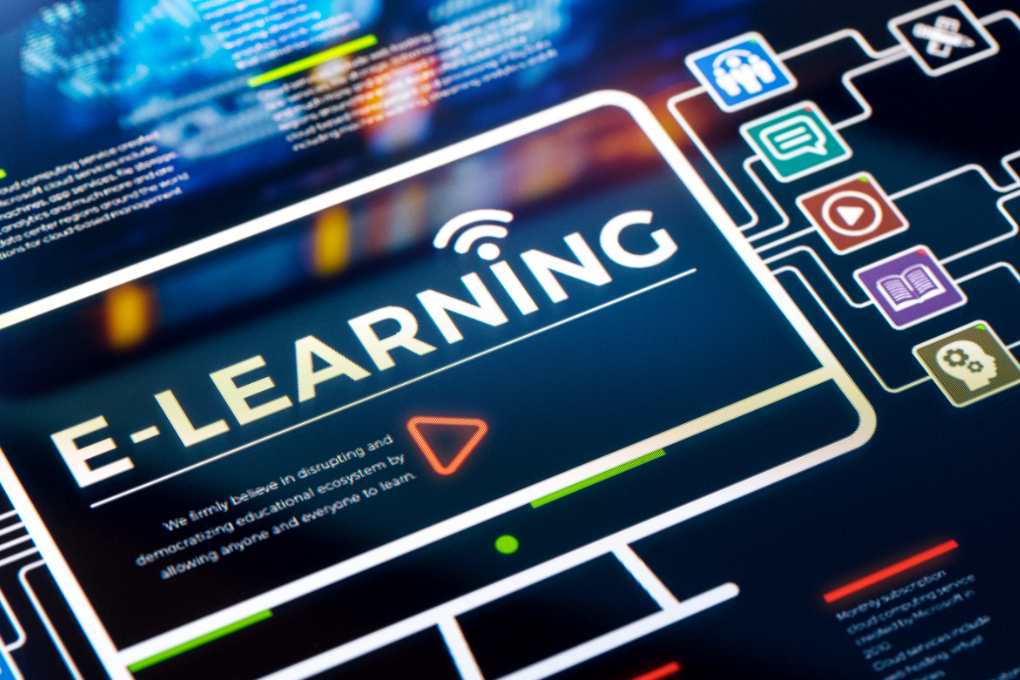E-learning has revolutionized traditional education systems and opened up an abundance of opportunities for both students and teachers alike. Thanks to technology, e-learning has grown increasingly popular as an effective and convenient means of acquiring knowledge across a range of subjects—an approach we will explore here in this blog post.
Convenience and Flexibility
E-learning platforms offer learners great convenience and flexibility when it comes to accessing educational material—anytime, anywhere with internet connectivity—making e-learning accessible even to busy professionals who wish to further their education.
E-learning makes education more accessible to a broader range of learners, including those in remote locations or with physical disabilities. It reduces both the time and costs related to travel.
Experience an interactive learning journey
E-learning platforms also offer learners a truly interactive learning experience through multimedia elements like videos, animations, and simulations that engage them more fully than traditional textbooks can. This approach improves retention and comprehension while making learning both enjoyable and effective.

E-learning platforms often incorporate gamified elements, like quizzes, badges, and leaderboards, into their design to engage students and track their progress. This gamified experience not only makes studying more engaging but also encourages continuous improvement efforts among its participants.
Custom Personalized Learning Paths (PLPs)
E-learning enables customized learning pathways tailored to the unique needs and learning styles of every student. E-learning platforms use assessments and analytics to assess where a student may be experiencing difficulty and provide targeted resources to assist them. This personalized approach to education ensures all learners get the support and guidance necessary for them to flourish and find success in life.
E-learning platforms also provide students with access to a broad selection of courses and subjects, giving them the power to pick courses that fit their career goals and are relevant to them. This flexibility empowers learners to take control of their education while exploring what drives them.
Cost-Efficient Education
One of the greatest advantages of e-learning over traditional education methods is its cost-efficiency. E-learning eliminates costly textbooks, transportation, and physical classroom spaces altogether, reducing overall education expenses for both individuals and institutions alike, making education more accessible across different socioeconomic groups.

E-learning platforms also often offer subscription-based models or pay-as-you-go options, enabling students to pay only when they require courses and making education more cost-effective and flexible—especially for those on tight budgets.
Reach and Collaboration, global approach
E-learning has the power to connect learners from around the globe, breaking down geographic barriers and encouraging global collaboration. Students can engage with classmates and instructors from diverse countries and cultural backgrounds using online forums, discussion boards, video conferencing tools, etc.
Global education exposes students to diverse perspectives and ideas from around the world while simultaneously cultivating cross-cultural understanding and cooperation. E-learning platforms allow students to collaborate on projects together while sharing knowledge and learning from one another in an environment that fosters rich and dynamic learning environments.
Skill Development Enhancement
Due to technological developments, demand for skill upgrading and reskilling is at an all-time high. E-learning provides access to courses and programs tailored specifically to workforce requirements – helping individuals develop new capabilities while staying competitive in their fields of work.
E-learning platforms often collaborate with industry experts and organizations to design courses that adhere to industry standards and best practices, providing students with relevant, up-to-date training that is in demand on the job market. This ensures they receive training that is timely, valuable, and marketable.
Adaptive Learning Technologies
Advances in adaptive learning technologies have revolutionized how students learn and retain information. Through adaptive learning algorithms that analyze each student’s performance and behavior, adaptive learning experiences are tailored specifically to address both their strengths and weaknesses for maximum student engagement and retention of knowledge.

Adaptive learning technologies enable each student to enjoy an individualized learning experience that maximizes their potential, increasing engagement and motivation while ultimately leading to enhanced academic outcomes.
Continuous Learning and Professional Growth
Continuous learning and professional development are integral parts of success in today’s rapidly evolving job market, and e-learning provides professionals with a convenient method for acquiring new skills while managing work and personal responsibilities simultaneously.
Many e-learning platforms provide microlearning modules, short courses, and certifications for professionals to take in their free time and stay current with changing workforce demands. With such bite-sized methods of education, individuals can quickly upskill quickly and efficiently while keeping pace with ever-evolving needs in the workforce.
Challenges and Opportunities
As much as e-learning provides many advantages, it also presents its own set of challenges and opportunities. One such challenge lies in guaranteeing the quality and credibility of online courses and certifications offered through various e-learning platforms; to ensure high-quality instruction is being delivered, it is necessary to verify the credentials of institutions and instructors to ensure this.
Bridge the digital divide and ensuring equal access to e-learning resources for all learners remains a significant challenge, and governments and institutions must come together to provide affordable internet access and devices in underserved communities so that every learner has an equal chance to benefit from e-learning.
E-learning is revolutionizing traditional education systems by offering flexible and personalized learning experiences to meet learners’ individual needs. Thanks to its global reach, cost-effectiveness, and adaptive technologies, e-learning could dramatically change how knowledge and skills are acquired in today’s digitalized environment.



